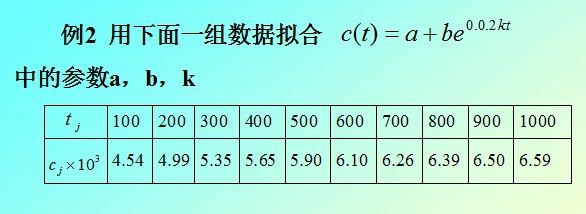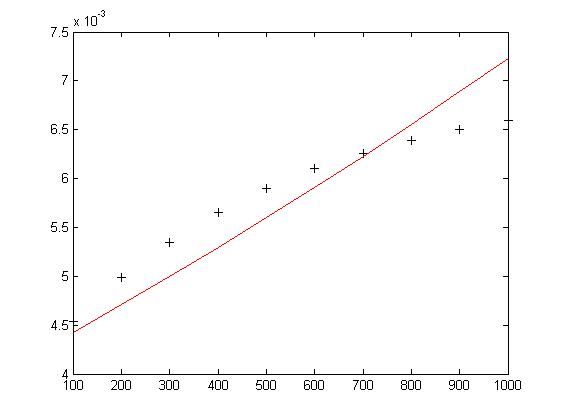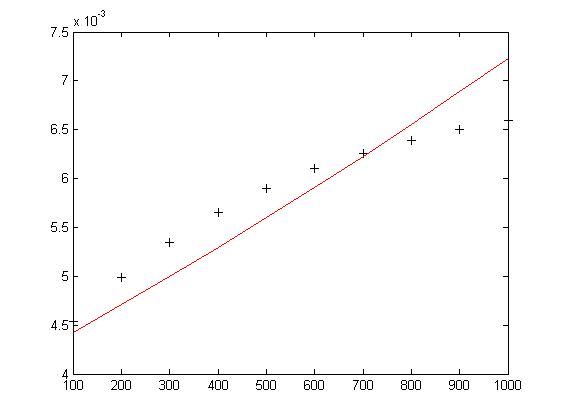Matlab:拟合(2)
非线性最小二乘拟合:

解法一:用命令lsqcurvefit
1 function f = curvefun(x, tdata) 2 f = x(1) + x(2)*exp(0.02 * x(3) * tdata); 3 %其中x(1) = a; x(2) = b; x(3) = c;
1 %数据输入 2 tdata = 100:100:1000; 3 cdata = 1e-03 * [4.54, 4.99, 5.35, 5.65, 5.90, 6.10, 6.26, 6.39, 6.50, 6.59]; 4 %设定预测值 5 x0 = [0.2 0.05 0.05]; 6 %非线性拟合函数 7 x = lsqcurvefit('curvefun', x0, tdata, cdata) 8 %作图 9 f = curvefun(x, tdata) 10 plot(tdata, cdata, 'k+') 11 hold on 12 plot(tdata, f, 'r')
结果:
x =
-0.0074 0.0116 0.0118
f =
Columns 1 through 8
0.0044 0.0047 0.0050 0.0053 0.0056 0.0059 0.0062 0.0066
Columns 9 through 10
0.0069 0.0072

解法二:用命令lsqnonlin
1 function f = curvefun1(x) 2 %curvefun1的自变量是x,cdata和tdata是已知参数,故应将cdata,tdata的值卸载curvefun1中 3 tdata = 100:100:1000; 4 cdata = 1e-03 * [4.54, 4.99, 5.35, 5.65, 5.90, 6.10, 6.26, 6.39, 6.50, 6.59]; 5 f = x(1) + x(2)*exp(0.02 * x(3) * tdata) - cdata;%注意
1 tdata = 100:100:1000; 2 cdata = 1e-03 * [4.54, 4.99, 5.35, 5.65, 5.90, 6.10, 6.26, 6.39, 6.50, 6.59]; 3 %预测值 4 x0 = [0.2 0.05 0.05]; 5 x = lsqnonlin('curvefun1', x0) 6 f = curvefun1(x) 7 plot(tdata, cdata, 'k+') 8 hold on 9 plot(tdata, f+cdata, 'r')
结果:
x =
-0.0074 0.0116 0.0118
f =
1.0e-003 *
Columns 1 through 8
-0.1168 -0.2835 -0.3534 -0.3564 -0.3022 -0.1908 -0.0320 0.1645
Columns 9 through 10
0.3888 0.6411
